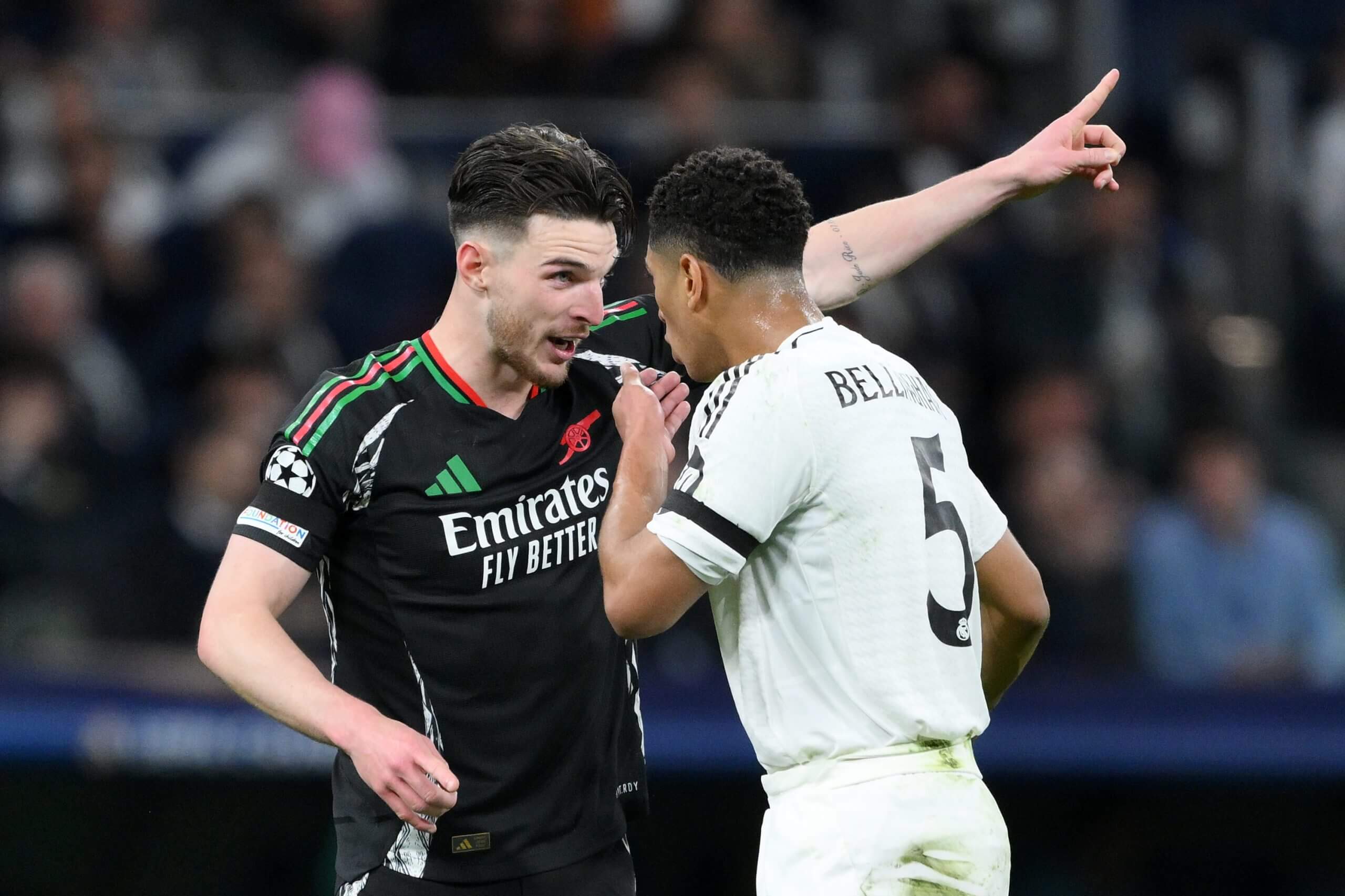
With Ousmane Dembele hurtling towards and his two centre backs split 40 yards apart behind him, Declan Rice knew he had to receive Jurrien Timber’s rifled pass perfectly or Paris Saint-Germain could be through on goal.
What he did over the next 10 seconds ridiculed the caricature often painted of a player, and leader, who has become the driving force of this Arsenal team.
Advertisement
The Rice of old, viewed by some as too limited to be the anchor of a possession team, may have stepped onto the pass and simply played the way he was facing. Instead, he backpedalled, checked his shoulder twice and let the ball run across his body to receive on the spin.
The Rice of old, who many said cannot play forward, may have panicked under the press and opted for the safety of his goalkeeper David Raya. Instead, he feigned to go backwards and, with a quick shake of the hips, left Dembele in his wake as he drove through Luis Enrique’s midfield and slid Leandro Trossard through on goal.
Had the Belgium forward been more clinical, it would have been a showstopper of an assist to match Rice’s two free-kick goals in the first leg of the quarter-final against Real Madrid.
But in a midfield battle the home team had been comfortably losing on points, Rice’s surge was still a power punch that reminded PSG’s artistic trio of Vitinha, Joao Neves and Fabian Ruiz that Arsenal possess qualities they do not.
The message he delivered at the end of the warm-up of the 1-0 defeat to PSG was “If we don’t have the ball, we die”. In the Bernabeu tunnel last month, he faced talk of another Real Madrid ‘remontada’ (comeback) by shouting “Nothing to fear, let’s go” as they walked onto the pitch.
It is easy to forget that Rice is still relatively new to this level of club football. Yes, he led West Ham United to their first trophy in 43 years by winning the Europa Conference League in 2023, but that is Europe’s third-tier tournament.
This is only his second season at Arsenal, and in the Champions League, yet it increasingly looks like he is taking the reins.

Rice has shone in the Champions League in recent weeks (David Ramos/Getty Images)
He is playing with increasing responsibility and personality, taking the corners and free kicks, making the executive decision on which delivery is best, using his feel of the game to know when it is appropriate to replace Mikel Arteta’s desire for controlled possession with a rampaging drive.
That surge, along with the long diagonals he started pinging and the way he boxed PSG in during the second half, was Rice’s way of recognising the urgency required to energise the crowd again.
In the first half, it was Bukayo Saka’s battering ram dribbles and Myles Lewis-Skelly’s physicality that helped wrestle control of the match after a difficult opening 20 minutes, before Mikel Merino and Rice managed to disrupt PSG and take command.
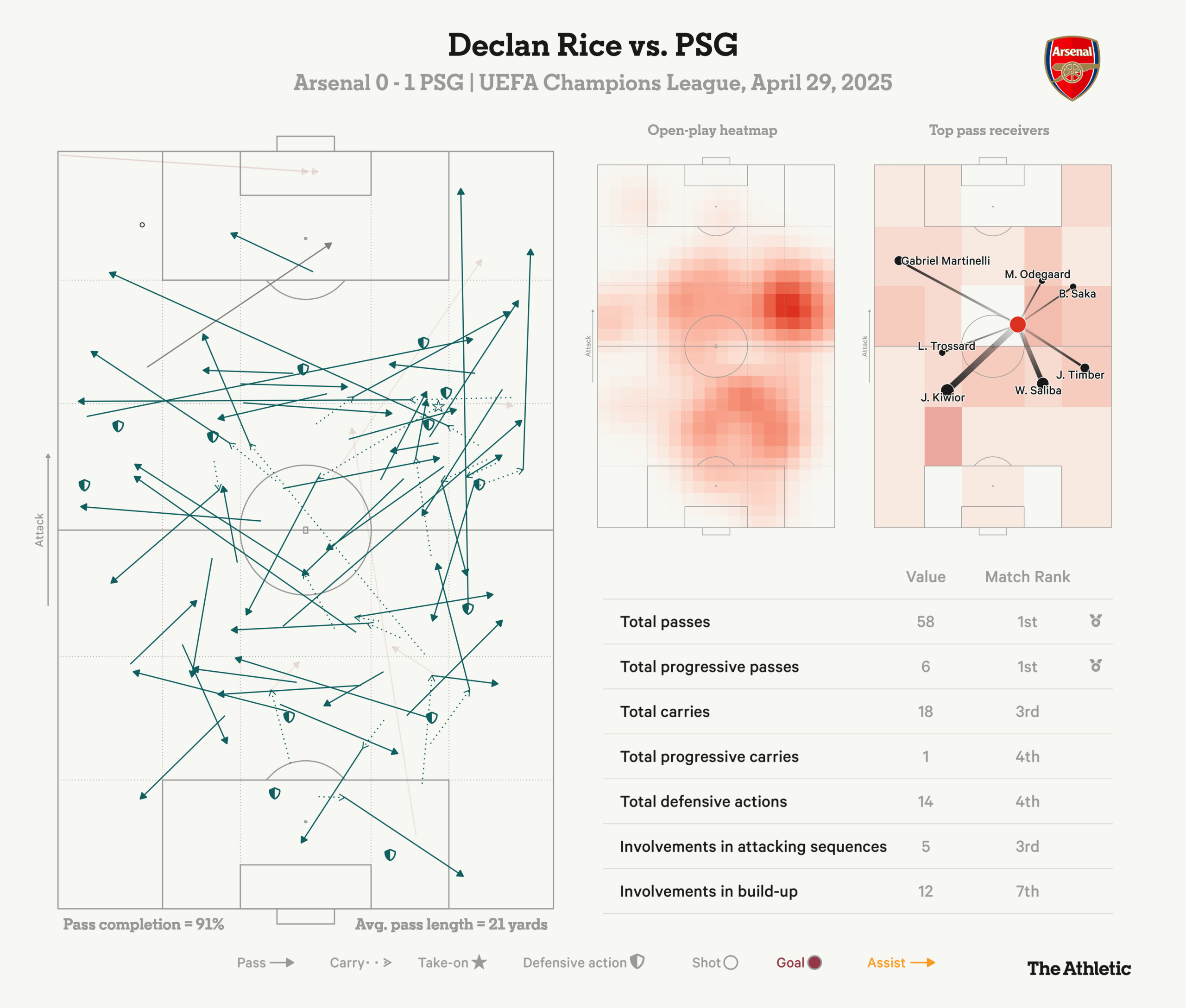
There was little of that influence from Arsenal’s captain Martin Odegaard, who left no indelible marks on the club’s biggest game in years.
He was on the periphery of the game throughout, even in the second half when Arsenal had periods of pressure. Accessing the ball was his main issue early on but it can be to creative players’ benefit that they drift in and out of games as it allows them to move by stealth and be more economical when the ball does arrive.
Unfortunately for Arsenal, Odegaard was timid. Even though the moves started to be conducted through him, as usual, there was an invisibility to his display.
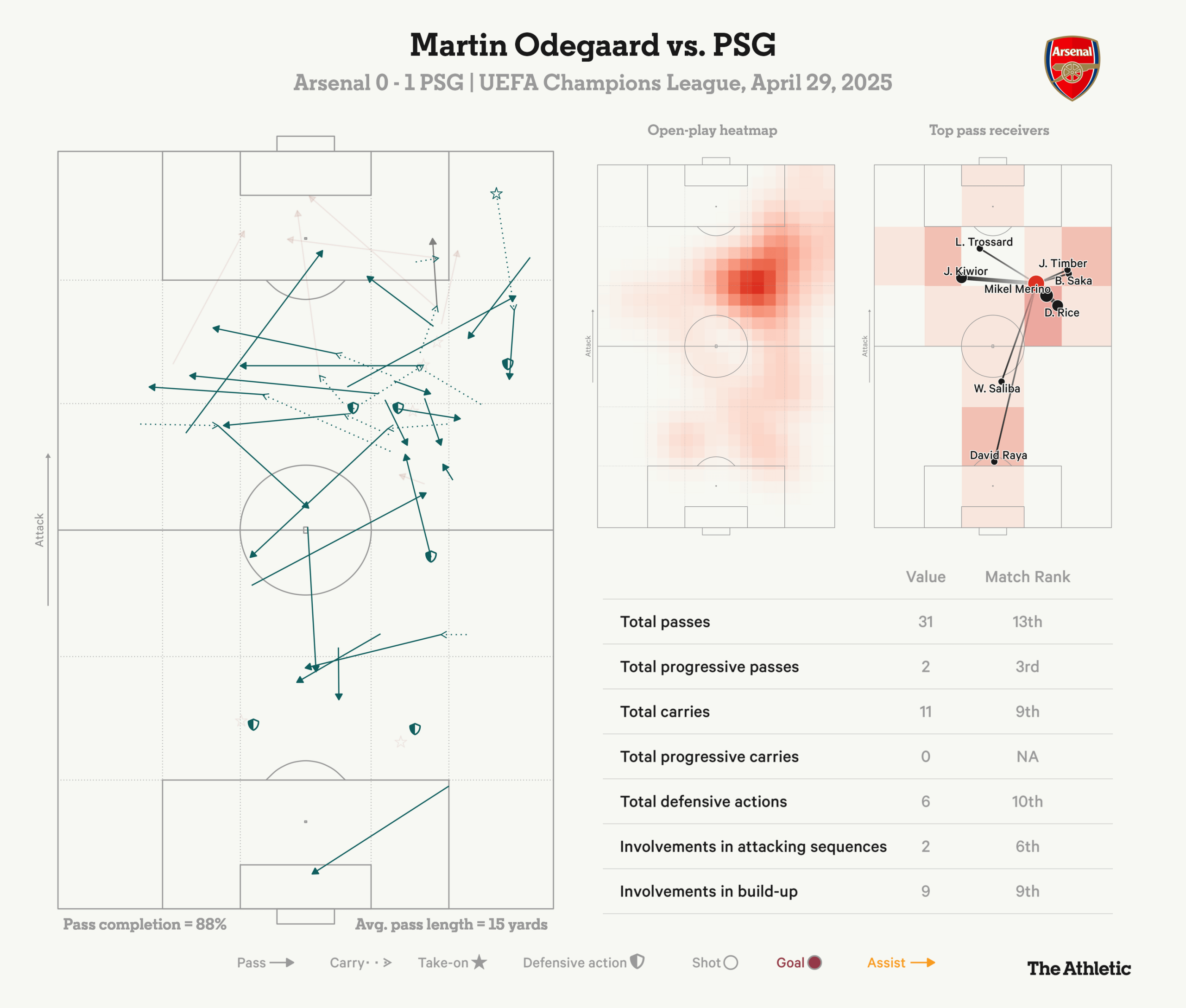
He turned over the ball too often, as he did against Madrid, and struggled to protect it when PSG hounded him.
Arsenal are a team whose attack has been built around the chemistry of Odegaard and Saka on the right but, while the winger was taking the game by the scruff of the neck and forcing his way through gaps, the captain appeared to be playing within himself.
Advertisement
It was seen in his decision-making. Playing square more often than he usually would, hesitating when the space opened up, forcing things when it did not. He tried a few of his delicate eye-of-the-needle passes around the edge of the box but they never came off and he increasingly played safe.
A lack of confidence can do that but for a player of such technical ability and vision, who Arsenal rely on to be the architect of their attacks, they needed him to take the lead.
When he was appointed captain in 2022 there were eyebrows raised on the outside. Not within Arsenal. They understood why Arteta valued his professionalism and calm personality, but most of all how he could embody the way he wanted his team to play.
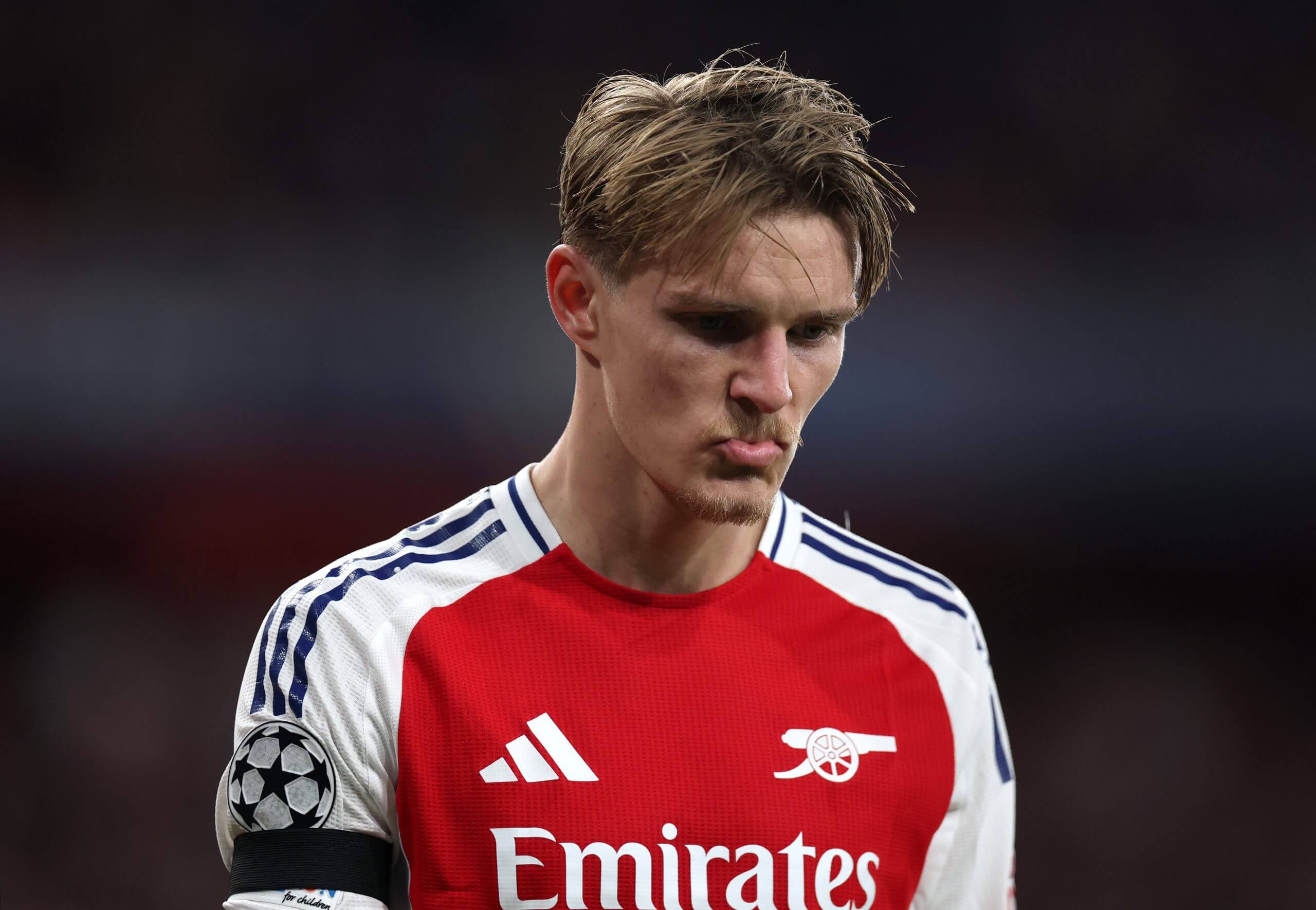
Odegaard’s form has dipped (Alex Pantling – UEFA/UEFA via Getty Images)
Odegaard is still the man who leads the press but, as a leader who is supposed to inspire through action rather than words, he has been lacking this season compared to the first half of 2024 when he was the best attacking player in the Premier League.
When he returned from just over a month out with ankle ligament injury in November, his presence was the catalyst for a stunning 5-1 win over Sporting CP in the Champions League but his influence has waned. He is without Kai Havertz as a focal point to play off but Saka is back and he has played 37 times since his return to fitness, so the explanations for his lack of sharpness become harder.
Arteta chose to replace him with Ethan Nwaneri as the clock ticked into five minutes of stoppage time — an unimaginable decision not so long ago. The manager has now taken him off with his team chasing a goal in six games this season.
Head bowed, he walked around the perimeter of the pitch with the body language of a man who knew he had failed to lead from the front. Next week in Paris, Arsenal need their captain to rediscover the infectious belief of last season when he was cutting open defences at will.
(Top photo: Odegaard, left, and Rice after Dembele’s winner. Justin Setterfield/Getty Images)
This news was originally published on this post .





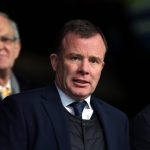
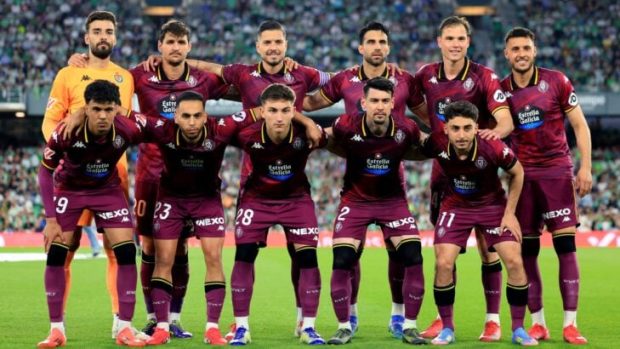
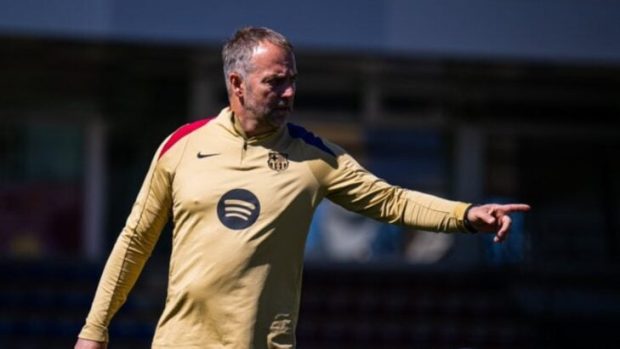
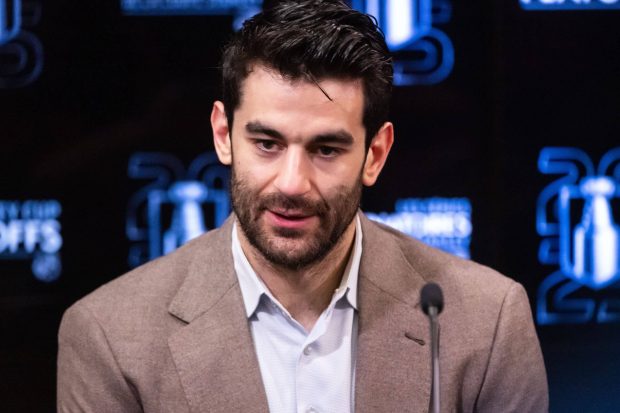
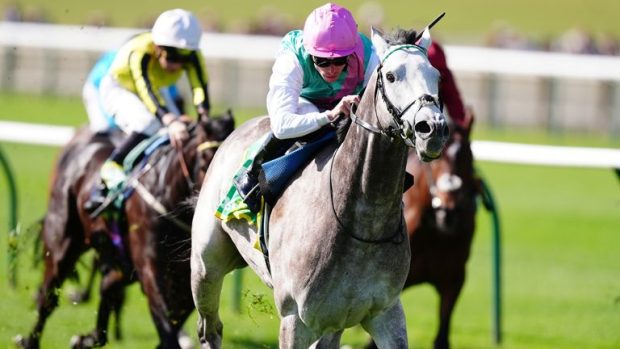
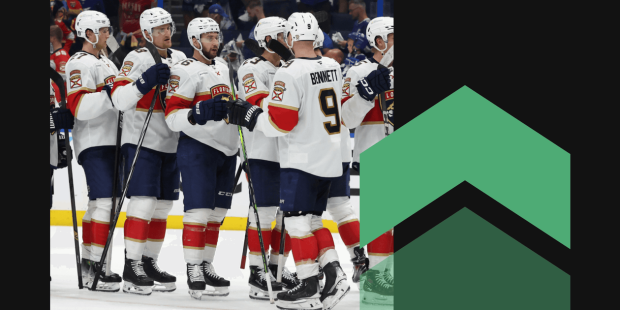
Be the first to leave a comment